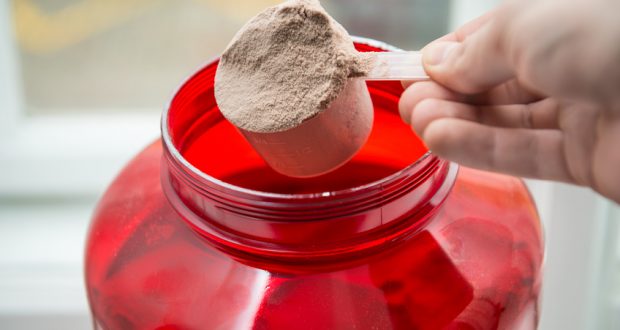You see them in commercials on TV, and on shelf after shelf at the supermarket. These days, it may seem that more people are drinking protein shakes than eating actual food!
Protein shakes can be helpful in adding nutrients to one’s diet, and in some instances, can help support weight loss. However, it is important to keep in mind that they can also pose health dangers.
It is crucial not to rely only on protein shakes. Having a shake instead of a meal on occasion is not likely to cause serious health issues, but drink them in moderation.
If you are planning on making protein shakes a regular and frequent part of your diet, be sure to talk with your physician before you begin. Take the protein container, or the shake bottle with you to your appointment so your physician can review the nutritional information and the list of ingredients. He or she will then give you the all-clear, or tell you to re-think your plan.
Get the majority of your protein, carbs, fats, and other nutrients from real foods. It is still best to eat whole foods rather than drinking shakes when it comes to balanced nutrition.
One of the biggest concerns for diabetics when it comes to protein shakes is the sugar content. Pre-mixed bottles shakes are often higher in sugar, preservatives, and artificial ingredients than shakes you mix at home. Be very mindful of the carb and sugar content in the shakes you purchase. Some protein shakes contain more sugar than a regular soda!
Now let’s talk protein. While it is essential to a healthy body, there is such a thing as too much protein. Consuming excess protein can increase the likelihood of diverticulitis, along with increased risk of heart and kidney problems.
Believe it or not, eating too much protein can also raise your blood sugar. Healthy adults should aim for between 45-55 grams of protein per day (this should include the protein from the foods you eat and the protein from any shakes you drink.)
If weight loss is your goal, be very mindful of the calorie amounts in the shakes you choose. If you’re not careful, you can easily take in more calories from that meal-replacement shake than if you had eaten an actual meal!
Don’t restrict yourself by only consuming shakes in an effort to lose weight quickly. Take it slow; eat a healthful balance of protein, fiber, and healthy fats, and add some form of physical activity or exercise.
Speaking of exercise, if you do perform regular physical activity, your body may benefit from the addition of a protein shake after your workout. Frequent, strenuous physical activity means your body needs more calories and protein to perform and to recover.
With so many varieties available, choosing a protein shake can quickly become confusing. Not all protein shakes are created equally, especially when it comes to their effects on your blood sugar. Be sure to read the nutritional information and ingredient list very carefully and have your physician review it, too.
The protein in “protein shakes” can come from various sources. Milk, whey, and soy protein are three of the most popular and widely available varieties. Rice, egg, and casein protein shakes are three more options.
The type of protein you choose would depend on your goals, any allergies or other health conditions, and upon the advice of your physician.
Keep in mind that milk, whey, and casein proteins all come from dairy, so be mindful or sensitivities, allergies, or medication conflicts. If you cannot consume dairy products, soy and rice proteins are two options for you.
While protein shakes can be a positive way to increase the protein and nutrients in your diet, it is very important to choose carefully and consume responsibly. Read nutrition labels carefully, get the shakes approved by your physician, keep your blood sugar in the front of your mind, get the majority of your nutrition from healthy foods, and do not depend on shakes alone.
Sources:
http://healthyeating.sfgate.com/health-risks-protein-shakes-6122.html
http://www.webmd.com/diet/protein-shakes
 Diabetic Kitchen
Diabetic Kitchen





Recent Comments